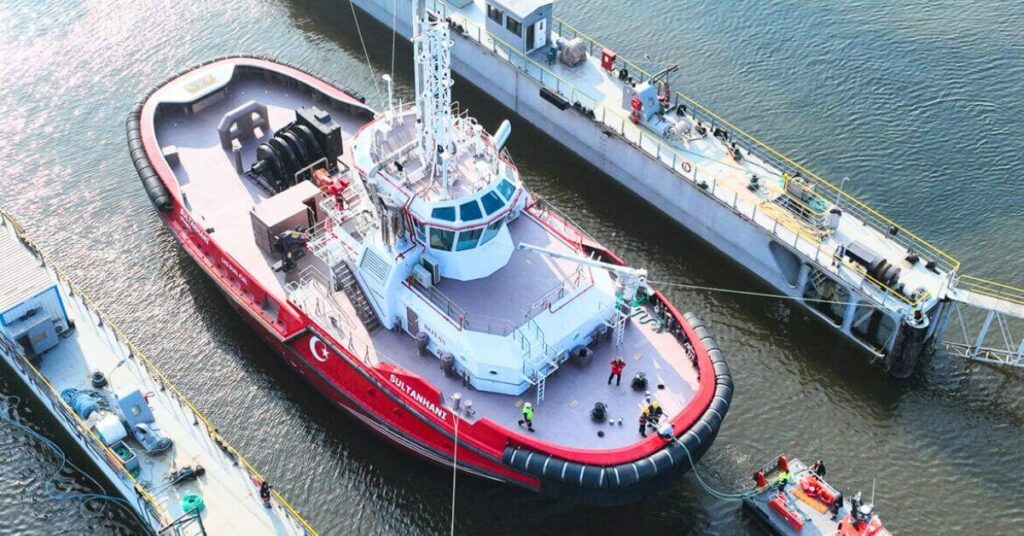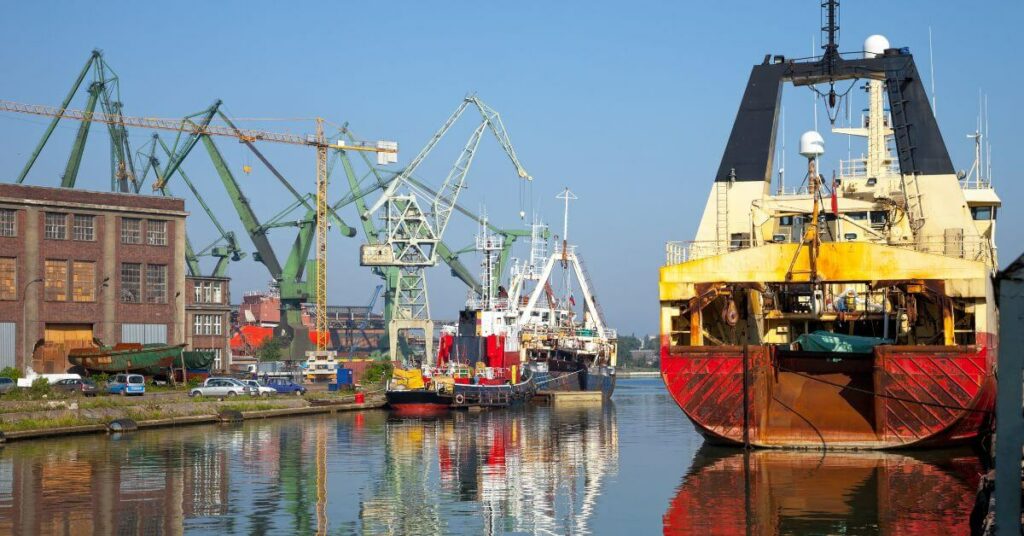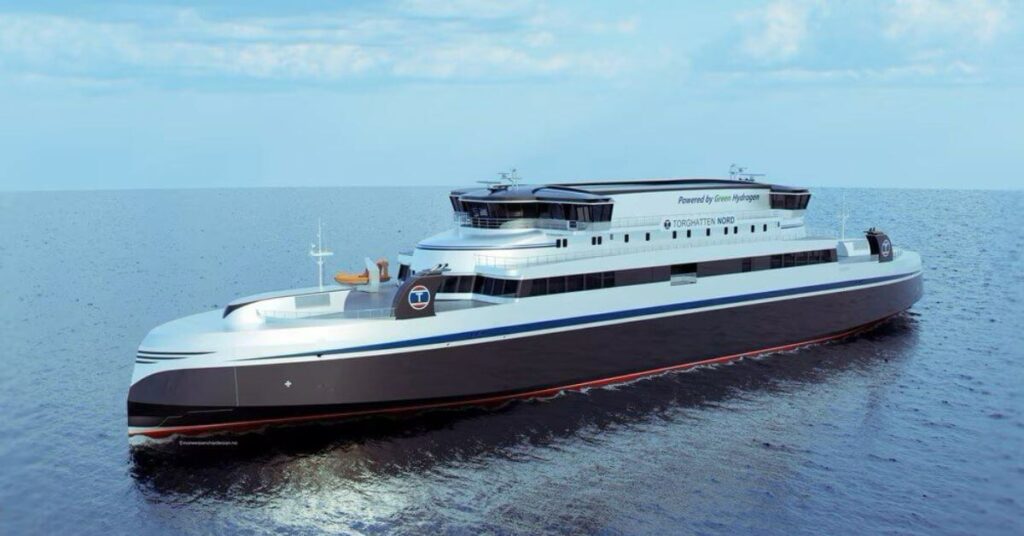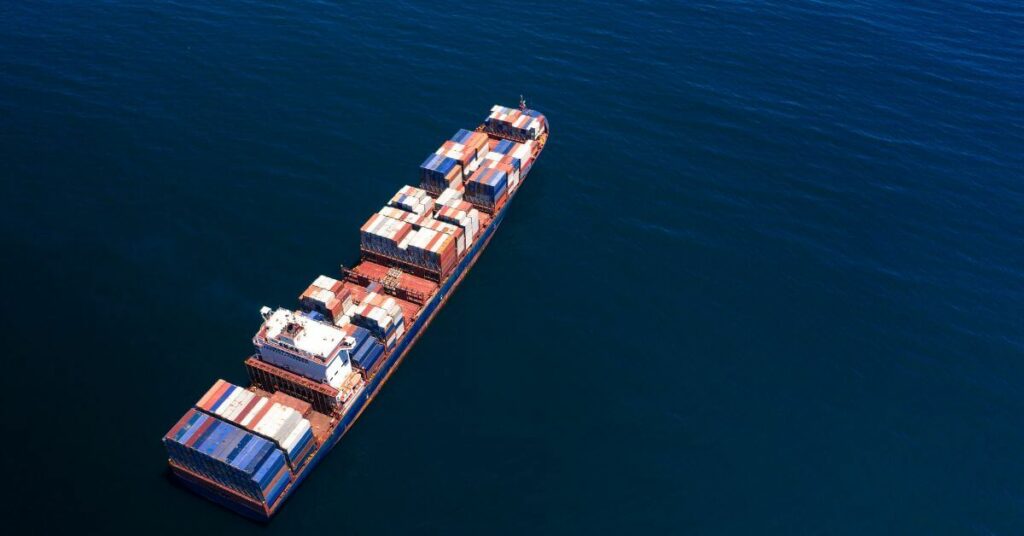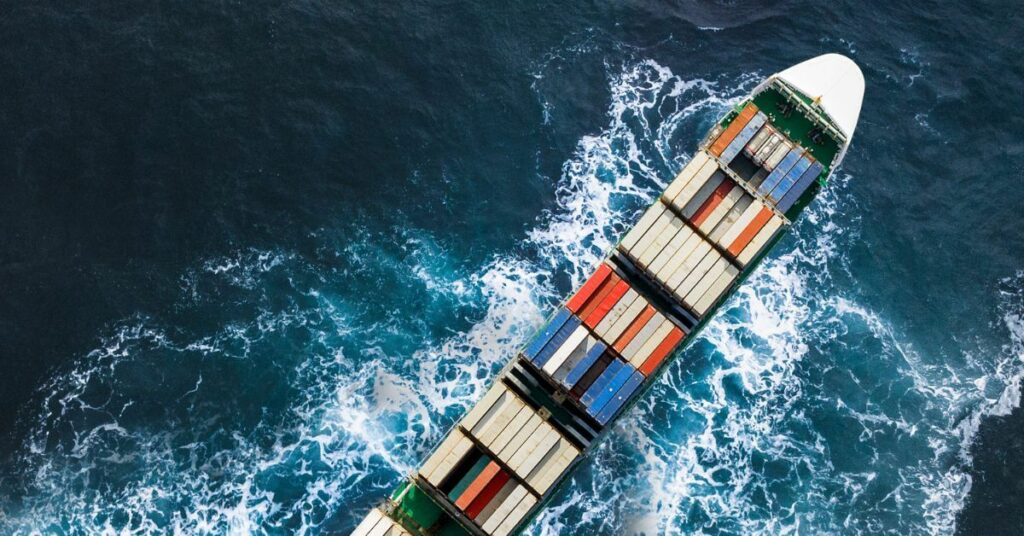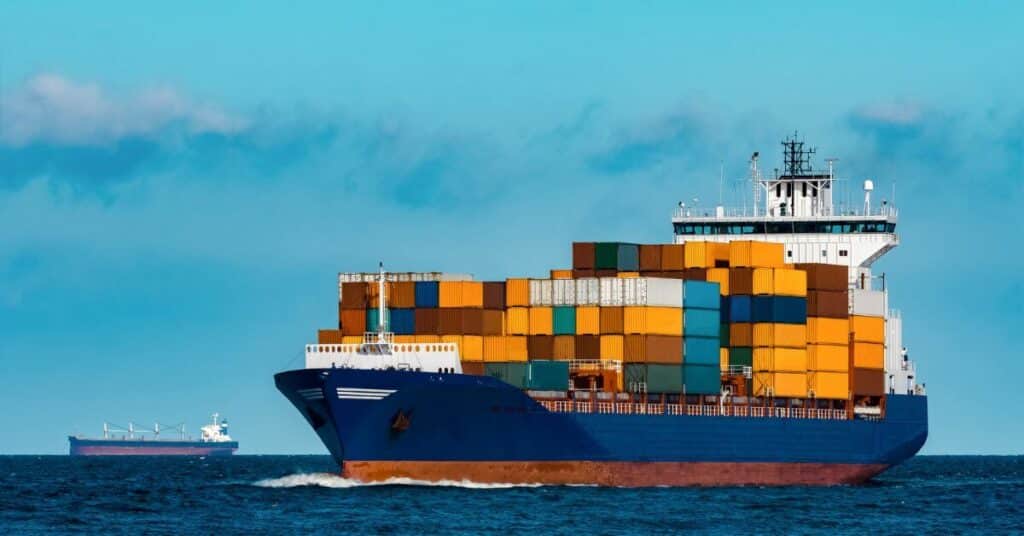Water – The Only Technically, Environmentally And Commercially Viable Propeller Shaft Lubricant
Thordon Bearings is alerting its customers to the recent publication of a DNV GL study that concludes the recent surge in propeller shaft bearing failures is indeed related to the use of certain environmentally acceptable lubricants (EALs).
In conclusion to the first phase of an ongoing investigation, DNV GL reported that “there are transient conditions involving high oil film pressures and/or low oil temperatures where [synthetic] EALs will have a reduced load-carrying capacity. The vast majority of stern tube bearing failures in recent years occurred in the same type of transient conditions – during hard manoeuvring at high ship speeds, during mooring trials, and when operating with a partly submerged propeller”.
George Morrison, Regional Manager, EMEA – ANZ, Thordon Bearings, said: “While no ship operating a propeller shaft bearing lubricated by water – an EAL designated by the US Environmental Protection Agency – has been immobilized to date, there has been conjecture concerning the poor operational performance of some synthetic lubricants. It is now unequivocal: the performance of these EALs is less than satisfactory.”
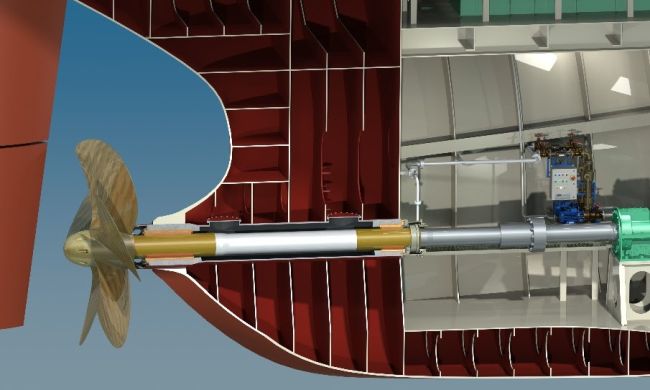
The DNV GL report and a subsequent webinar, titled Environmentally Acceptable Sterntube Lubricants – How to Avoid Costly Failures, revealed a sharp increase in sterntube damage affecting all ship types and sizes following the 2014 introduction of rules prohibiting the use of mineral oil in oil-to-sea interfaces of vessels trading in US waters.
DNV GL found that the dominant failure was bearing wiping – when oil film is lost, resulting in metal to metal contact. It concluded that synthetic EALs behave differently than mineral oils under different operating pressures and temperatures, affecting viscosity and load bearing capacity. EALs based on unsaturated esters were singled out as being particularly prone to failure.
“This investigation verifies our long-held view that these EALs can impede shaft bearing and seal performance, damage critical components and compromise oil-tight integrity, resulting in emergency remedial repairs at significant cost to the shipowner,” added Morrison.
The investigation did not include seawater lubricated propeller shaft bearings because this arrangement falls under different class rules to those relating to sterntube bearings lubricated by mineral or synthetic oils.
“We have different rules covering seawater-lubricated bearings, and there is no problem to use those kind of designs for DNV GL classed ships [sic]. We did not see a necessity to include those in the same study,” said DNV GL in response to a written question put forward during the webinar.
The report’s findings are likely to send a ripple of concern throughout the industry given its investment in EAL oils, which were widely seen as a technically viable solution to reducing marine pollution from mineral oil-based lubricants.
Craig Carter, Director of Marketing & Customer Service, Thordon Bearings, said: “I would not be surprised if the classification societies start to revise their shaft alignment and withdrawal rules for bearings using this kind of lubricant. There is no doubt that lubricating white metal bearings with biodegradable oil can be technically and commercially risky. With mineral oil-based lubricants now rightly regarded as environmentally unacceptable, the only proven EAL option available for lubricating the propeller shaft bearing is seawater.”
Since 2014, DNV GL says it has noticed an increase in the number of ships adopting water lubricated propeller shaft bearing arrangements.
The classification society aims to continue the EAL study, investigating oil film thickness and thermal properties. A third phase of the investigation will look at mid-to long-term degradation, hydrolysis and wear rates of those seals and bearings using these types of lubricants.
Press Release
Disclaimer :
The information contained in this website is for general information purposes only. While we endeavour to keep the information up to date and correct, we make no representations or warranties of any kind, express or implied, about the completeness, accuracy, reliability, suitability or availability with respect to the website or the information, products, services, or related graphics contained on the website for any purpose. Any reliance you place on such information is therefore strictly at your own risk.
In no event will we be liable for any loss or damage including without limitation, indirect or consequential loss or damage, or any loss or damage whatsoever arising from loss of data or profits arising out of, or in connection with, the use of this website.
Disclaimer :
The information contained in this website is for general information purposes only. While we endeavour to keep the information up to date and correct, we make no representations or warranties of any kind, express or implied, about the completeness, accuracy, reliability, suitability or availability with respect to the website or the information, products, services, or related graphics contained on the website for any purpose. Any reliance you place on such information is therefore strictly at your own risk.
Do you have info to share with us ? Suggest a correction
About Author
Marine Insight News Network is a premier source for up-to-date, comprehensive, and insightful coverage of the maritime industry. Dedicated to offering the latest news, trends, and analyses in shipping, marine technology, regulations, and global maritime affairs, Marine Insight News Network prides itself on delivering accurate, engaging, and relevant information.

About Author
Marine Insight News Network is a premier source for up-to-date, comprehensive, and insightful coverage of the maritime industry. Dedicated to offering the latest news, trends, and analyses in shipping, marine technology, regulations, and global maritime affairs, Marine Insight News Network prides itself on delivering accurate, engaging, and relevant information.
Latest Shipping News Articles You Would Like:
Subscribe To Our Newsletters
By subscribing, you agree to our Privacy Policy and may receive occasional deal communications; you can unsubscribe anytime.




